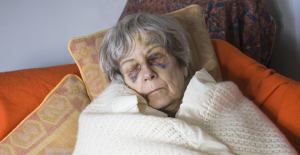When you go to a doctor’s office, hospital, or other healthcare facility you expect to leave the facility feeling better than when you went in to the facility. Unfortunately, that doesn’t always happen. Sometimes, a medical error occurs, causing the patient to suffer additional injury. If the medical error rises to the level of medical negligence, the victim, or the victim’s survivors in the case of a fatal error, may be entitled to compensation for the injuries caused by the negligence. This often leads to the question “ How is medical negligence proven? ”
“Negligence” is a legal standard used to prove that a defendant is culpable, or responsible, for injuries suffered by a victim. In most personal injury accident cases, the victim must prove the existence of four elements in order to prove negligence: duty of care; breach of the duty of care; causation; damages. When the injuries were allegedly caused by medical negligence, proving negligence is much more complicated because a slightly different standard is used. When the defendant is a doctor or other healthcare provider, the issue is whether the defendant provided the “level and type of care that a reasonably competent and skilled health care professional, with a similar background and in the same medical community, would have provided under the circumstances that led to the alleged malpractice.” If the defendant failed to provide the required level of care, the victim (or survivors) are likely entitled to compensation.
Because a modified standard is used when attempting to prove medical negligence, the method of proving the standard is also modified. In most personal injury accident cases the jury is asked to decide that a reasonable person would not have acted (or failed to act) as the defendant did and, therefore, the defendant was negligent. When medical negligence is the issue, however, the standard is not a reasonable person but a “reasonably competent and skilled health care professional”. Therefore, an expert witness is needed.
To prove medical negligence, the victim must have another doctor, or healthcare professional, who is willing to testify that the defendant was negligent. Only then can the victim hope to be awarded compensation for injuries or loss.
If you have been injured by what you believe to be a medial error, or you have lost a loved one to medical negligence, contact an experienced Tennessee medical malpractice attorney as soon as possible.
- How Much Child Support Will I Receive in Tennessee? - May 14, 2025
- What It Means to Have an Uncontested Divorce in Tennessee - May 14, 2025
- Understanding the Medicaid Estate Recovery Program in Tennessee - March 27, 2025



